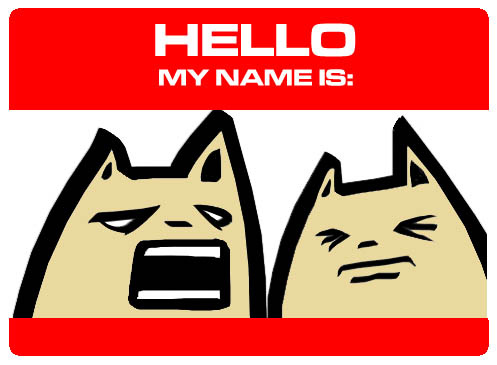An essay at Etsy explains more about the way clothing used to be. In 1900, a new dress could cost a couple month’s wages. Thanks to overseas labor, modern machinery, and synthetic fabrics, it only takes abut an hour to earn the price of a discount store dress.
As clothes have become cheaper, our clothing consumption has gone through the roof. In 1930, the average American woman owned an average of nine outfits. Today, we each buy more than 60 pieces of new clothing on average per year. Our closets are larger and more stuffed than ever, as we’ve traded quality and style for low prices and trend-chasing. In the face of these irresistible deals, our total spending on clothing has actually increased, from $7.82 billion spent on apparel in 1950 to $375 billion today. And the discounters are reaping the rewards.

Read more… Via
If you game a lot, surf a lot, code a lot, whatever, you willl have it.

Australians may have a love of plain speaking but new laws are set to curtail some of their more colourful language with police issuing on-the-spot fines for obnoxious swearing.
The country’s second most populous state Victoria is due to approve new legislation this week under which police will be able to slap fines of up to Aus$240 (US$257) on people using offensive words or phrases. Victorian Attorney-General Robert Clark said the penalties, similar to those issued for speeding or parking illegally, would free up police time.
“This will give the police the tools they need to be able to act against this sort of obnoxious behaviour on the spot, rather than having to drag offenders off to court and take up time and money in proceedings,” he said.
But even the state’s top lawyer admitted to swearing sometimes. “Occasionally I mutter things under my breath as probably everybody does,” he told ABC radio.

Read more…
Alexandra will get an A in class but Amber won’t. At least, that’s what their peers expect, according to a small new study of the meanings encoded in people’s names.
“The name you give your kid is sort of a proxy for a whole bunch of things in our culture,” study researcher John Waggoner of Bloomberg University of Pennsylvania told LiveScience. Names have been linked to many life choices, including what kind of work people do and how they donate to charity.
Previous studies have shown that what people name their children varies by their socioeconomic status and education level. Waggoner and his colleagues wondered if people’s names affect what others expect of them.

Read more…







